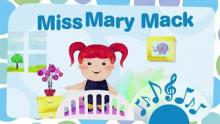
“Oranges and Lemons” is a traditional English nursery rhyme and singing game which refers to the bells of several churches, all within or close to the City of London.
The game
The song is used in a children’s singing game with the same name, in which the players file, in pairs, through an arch made by two of the players (made by having the players face each other, raise their arms over their head, and clasp their partners’ hands). The challenge comes during the final lines:
Here comes a candle to light you to bed.
Here comes a chopper to chop off your head.
(Chip chop, chip chop, the last man’s dead.)
On the last word, the children forming the arch drop their arms to catch the pair of children currently passing through, who are then “out” and must form another arch next to the existing one. In this way, the series of arches becomes a steadily lengthening tunnel through which each set of two players have to run faster and faster to escape in time.
Alternative versions of the game include: children caught “out” by the last rhyme may stand on a pressure plate behind one of the children forming the original arch, instead of forming additional arches; and, children forming “arches” may bring their hands down for each word of the last line, while the children passing through the arches run as fast as they can to avoid being caught on the last word. It was often the case, in Scottish playgrounds, that children would pair into boy and girl and the ones “caught” would have to kiss.
"Oranges and Lemons" Lyrics
Oranges and lemons,
Say the bells of St. Clement’s.
You owe me five farthings,
Say the bells of St. Martin’s.
When will you pay me?
Say the bells of Old Bailey.
When I grow rich,
Say the bells of Shoreditch.
When will that be?
Say the bells of Stepney.
I do not know,
Says the great bell of Bow.
Here comes a candle to light you to bed,
And here comes a chopper to chop off your head!
Chip chop chip chop the last man is dead[1]
Earlier version
Gay go up, and gay go down,
To ring the bells of London town.
Bull’s eyes and targets,
Say the bells of St. Marg’ret’s.
Brickbats and tiles,
Say the bells of St. Giles’.
Halfpence and farthings,
Say the bells of St. Martin’s.
Oranges and lemons,
Say the bells of St. Clement’s.
Pancakes and fritters,
Say the bells of St. Peter’s.
Two sticks and an apple,
Say the bells at Whitechapel.
Old Father Baldpate,
Say the slow bells at Aldgate.
You owe me ten shillings,
Say the bells at St. Helen’s.
Pokers and tongs,
Say the bells at St. John’s.
Kettles and pans,
Say the bells at St. Ann’s.
When will you pay me?
Say the bells of Old Bailey.
When I grow rich,
Say the bells of Shoreditch.
Pray when will that be?
Say the bells of Stepney.
I am sure I don’t know,
Says the great bell of Bow.
Here comes a candle to light you to bed,
And here comes a chopper to chop off your head.
"Oranges and Lemons" Origins
Various theories have been advanced to account for the rhyme, including: that it deals with child sacrifice; that it describes public executions; that it describes Henry VIII’s marital difficulties. Problematically for these theories the last two lines, with their different metre, do not appear in the earlier recorded versions of the rhyme, including the first printed in Tommy Thumb’s Pretty Song Book (c. 1744), where the lyrics are:
Two Sticks and Apple,
Ring ye Bells at Whitechapple,
Old Father Bald Pate,
Ring ye Bells Aldgate,
Maids in White Aprons,
Ring ye Bells a St. Catherines,
Oranges and Lemons,
Ring ye bells at St. Clements,
When will you pay me,
Ring ye Bells at ye Old Bailey,
When I am Rich,
Ring ye Bells at Fleetditch,
When will that be,
Ring ye Bells at Stepney,
When I am Old,
Ring ye Bells at Pauls.
There is considerable variation in the churches and lines attached to them in versions printed in the late eighteenth and early nineteenth centuries, which makes any overall meaning difficult to establish. The final two lines of the modern version were first collected by James Orchard Halliwell in the 1840s.
Oranges and Lemons was the name of a square-four-eight-dance, published in Playford’s, Dancing Master in 1665, but it is not clear if this relates to this rhyme. Similar rhymes naming churches and giving rhymes to their names can be found in other parts of England, including Shropshire and Derby, where they were sung on festival days, on which bells would also have been rung.
"Oranges and Lemons" Youtube Videos



